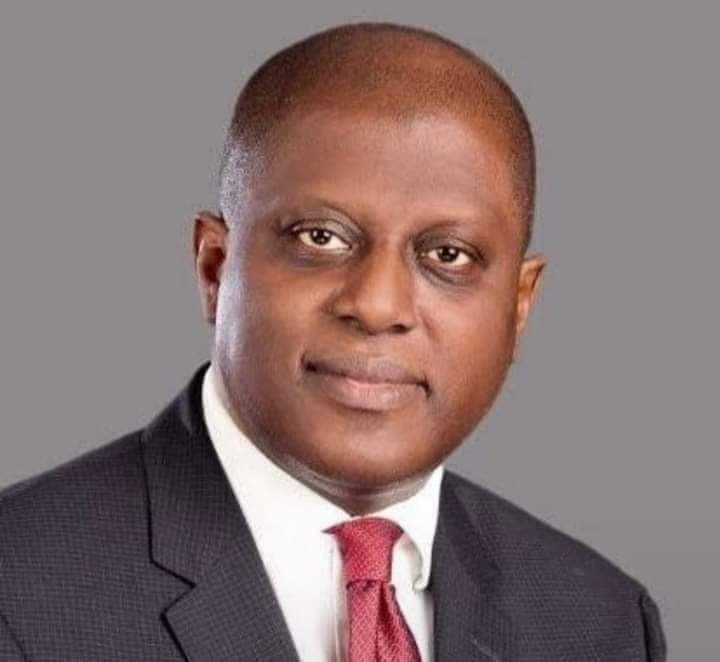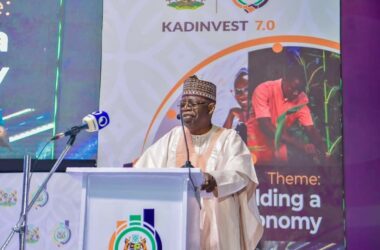Sometimes it is hard to resist the feeling that the Nigerian enterprise operates, for the most part, according to Marshall’s Law, namely, that anything that CAN go wrong will definitely go wrong. It is bad enough to see that we live in a society in which individuals can flout the law at will – provided they have the requisite financial resources and the right connections – no thanks to the impotence of the institutions that were established to check such abuses and excesses, to deter would-be perpetrators and to mete sanctions to offenders.
But it is infinitely worse, and tragically so, when it is the institutions themselves that are doing the flouting. If the foundations be destroyed, as the Scriptures ask, what can the righteous do?
That is the conundrum in which the Nigerian economy – and the critical stakeholders who invest in its stability and sustainable growth – have found themselves, following reports that the Central Bank of Nigeria (CBN) has been playing fast and loose with the country’s foreign exchange profile (since when President Bola Ahmed Tinubu announced the floatation of the country’s exchange rate mechanism) in mid-2023. To be sure, the floatation policy, even by itself, was always going to have a profoundly disruptive effect as far as the fundamentals of the Nigerian economy are concerned; it was expected to have a negative impact (at least in the short term) on the standard of living, quality of life, and livelihoods of millions of homes across the country. It is no secret, of course, that the fundamentals of the Nigerian currency, the naira, are weak, to say the least – no thanks to the import-oriented nature of the economy, its largely mono-culture profile, and its low industrial base. Tinubu’s market-friendly moves were aimed at courting international investors, even as they temporarily hurt Nigerians at home and added fuel, so to say, to an already serious inflationary trend by making imported goods and raw materials more expensive.
But the CBN’s reported practice – of deliberately creating artificial forex scarcity, and then selling same to various commercial banks at, say, between N700 and N800 to one US dollar, only for said banks to sell same to the general public at between N1400 and N1500 to the dollar – adds a new and, one might say sinister, dimension to an already precarious situation, and makes a mockery of the Tinubu Administration’s policy of achieving forex parity via the unification of all FX windows. Shortly after his inauguration in May last year, the President had set out to liberalise the foreign exchange system which had for so long been bogged down by a rather unorthodox regime that pegged the exchange rate rather, than allow the naira to trade freely and find its true value.
It also makes a mockery of the very principle of economic openness between countries in the global economy, which, for the most part, has resulted in increased scrutiny in how economic variables interact, and their impact on our world. One example is the effect of volatile exchange rates AND oil price shocks – to name just two economic variables that Nigeria is presently confronted – on the rate of inflation. In today’s global economy, a sudden oil price increase or decrease can be viewed as good or bad news for any nation depending on what side of the “oil demand and supply” coin that country finds itself. The extent of the relationship between the stated economic variables is particularly important to nations like Nigeria because of its over-reliance on oil exports as its major source of foreign earnings. So, apart from other internal factors, the reason for rising inflation in Nigeria can be attributed to the volatility in both oil prices and currency exchange rates. In 2015, for example, the international community experienced a precipitous fall in the price of oil, which as expected, resulted in a decline in Nigeria’s foreign exchange rates. During that period, the country’s inflation rate rose from 12.5% in the first quarter to about 13% in the second quarter, in spite of attempts by the CBN to pin the naira to a fixed value. And between the time President Tinubu took office and now, the naira has depreciated even further by approximately 68%.
This much is known and appreciated by all stakeholders with some understanding of the nuances of the market forces that drive the ebb and flow of foreign exchange and the consequent inflation. Stakeholders in both the public and private sectors know, at least in principle, what needs to be done.
What is often underestimated by policymakers and other critical stakeholders, however, is the impact of the inter-relationship of these variables within the context of the so-called ‘Nigerian Factor.”
Sometime last year – just 6 months after the CBN removed the rate cap on the exchange rate and announced other measures aimed at unifying its mechanisms – it disclosed that it had uncovered infractions, gross abuse and non-compliance with foreign exchange market regulations by some players within the system. In its bid to clear the backlog of outstanding foreign exchange liabilities and forward obligations to banks and other firms (said to run to the tune of above $7bn) the apex bank paid out substantial claims to companies and entities across various sectors, including manufacturing, aviation, and petroleum. It also cleared up the entire liability of 14 banks and started settlements with foreign airlines. At the time, however, a senior executive of the apex bank revealed that the bank (smelling the proverbial rat in some of the claims it was required to honour) proceeded to commission an independent forensic review of the process by the reputable firm, Deloitte Management Consultant – a review which, in time, revealed said abuses and significant non-compliance with market regulations by certain players, and in particular the discovery that as much as $2.4bn of the transactions was invalid. The CBN also said some of the infractions included a lack of valid import documents, as well as transactions involving NON–EXISTENT entities.
No thanks in part to these infractions, the naira has been on a prolonged retreat against the US dollar – a retreat dating back to the 2020 pandemic lockdown, to be sure, but which has shown no sign of abating four years on, as a catalogue of unmet obligations to investors and exporters continues to strain the currency to its limits. Recall that the naira finished the 2023 calendar year as the world’s WORST-PERFORMING currency, as it is weighed down by illiquidity and by commonplace speculative practices among market operators and even street traders. As a result of this illiquidity, users of forex still have to patronize the parallel market, where the exchange rate is much higher but the dollar is, at least, in greater supply.
In response to these infractions, the apex bank pledged that appropriate sanctions would be meted out in collaboration with relevant agencies such as the Economic and Financial Crimes Commission (EFCC). And indeed the EFCC, on its part, did undertake a probe into these infractions – which included alleged preferential allocations of forex to over 50 other companies BY THE CBN itself!
With banks are being fingered in the speculative activities that are pressuring the naira, the CBN had ordered banks at the end of January this year to increase the dollar supply to the market by ensuring that the gross amount of loans lenders can grant in foreign currency doesn’t exceed one-fifth of their shareholders’ funds, among other measures. Whether the banks would adhere to the CBN’s orders remains to be seen – if the allegations of collusion between the CBN (or certain of its officials) and the banks are anything to go by.
President Tinubu is widely expected to step into this morass in a much more intentional manner than he has already done, notably by making a public pronouncement detailing his administration’s response to the allegations roiling the foreign exchange ecosystem, by issuing the requisite executive order(s) to that effect, and by putting the necessary pressure on the CBN and its leadership in order to influence the desired outcome as far as the stability of the naira is concerned.
Experts believe there remains a window for the President to build on – and even expand – the momentum created by the approval and show of support he has so far received from the international financial and investment community for his policies on both the removal of oil subsidies and the floatation of the naira exchange rate. Recall that one of the most enthusiastic of these influential supporters is the World Bank, whose immediate past president, David Malpass, commended the Nigerian leader for “taking concrete steps to scrap Nigeria’s harmful government subsidies and multiple exchange rates. These are important steps toward currency stability, lower inflation, and reduced corruption in Africa’s most populous country. ” Similar sentiments have been expressed by the World Bank’s Country Director in Nigeria, Dr. Shubham Chowdury.
Such influential voices have also been profuse full of cautious praise for CBN Governor Cardoso, whose actions since his assumption of office have had the effect of not only stemming the tide, but actually reversing it – one reform measure at a time. As a result of these measures, turnover in the country’s forex jumped to $844m as at February 3 this year. This amount, according to reliable data, is the highest inflow in a 19-year period, and represents 3 times the amount over the previous equivalent period. The Cardoso-led reforms, which signal a new era of transparency in the view of market watchers, has enabled the naira to trade freely against the dollar. The CBN’s directive to banks to offload excess dollars, and the apex bank’s action in removing the cap on transactions by the IMTO (ie the International Monetary Transfer Operators) have had some salutary effects.
These positive views have also been repeatedly echoed by local commentators, especially those operate in the capital market ecosystem. A number of them add, however, that the Tinubu-led government must IMMEDIATELY come out with bold new reforms, regulatory frameworks and clear, unambiguous guidelines designed to instil sanity into the nation’s forex market. They insist that President Bola Tinubu must urgently address the naira depreciation and deal decisively with violators of forex guidelines and frameworks, from punishing sanctions and fines, to expulsion from further participation in the system, and even to jail time for the most brazen offenders.
In calling for sanctions, these analysts emphasize the importance of political will. Even as they warn that the action (or inaction) of the President and other stakeholders has an enormous impact on the value of the local currency, and as they acknowledge that there are no simple or quick-fix measures, they nevertheless insists that these policy measures must be strong, decisive and timely, and a consolidation of strategies already in plac – given that, in their view, Nigeria does not have any FX regulatory guidelines in place as yet, which is why certain players, including those in both the apex and commercial banks, have been so unrestrained in taking matters into their own hands and doing whatever they liked with the forex mechanism. It behoves on the President at this time, these experts believe, to firm up the ground rules so that no one is in doubt as to his government’s intent as far as forex stability (and its role as a check on inflationary trends in the Nigerian economy) is concerned.
Recall also that in the last few weeks, the Tinubu administration made known its plans to move certain key departments of the CBN from Abuja, Nigeria’s federal capital, to Lagos, its commercial nerve entre. Beyond the controversy it has generated on the political level (with insinuations making the rounds in certain quarters that the President is harbouring plans to restore Lagos as the country’s capital – which the government has emphatically denied), economic analysts see it as a sound, strategic move designed to bring the operations of the CBN closer to the market. Being closer to the market in this regard, they believe, would bring about a more effective application of the eagerly-anticipated reforms and guidelines in terms of surveillance, monitoring and invariably, enforcement. The President has shown political will in the past, and a willingness to bite the bullet when it comes to the hard but necessary decisions to drive the national economy forward. This, analysts say, has to continue as far as the operations of an economic engine such as the CBN and the nation’s financial system are concerned.
This is no time to play politics with the fortunes of millions of Nigerians, or to indulge the antics of speculators who fiddle with the nation’s economic fundamentals, like Nero of old, while the people writhe in economic pain. This is the time to identify squarely with the collective aspirations of the Nigerian people in terms of their present welfare and future security, and with the sustainable development of our country. This is the time for President Bola Tinubu to match intentions with action, to ensure that institutions do not serve only vested interests or a privileged few, but the generality of the populace. This is the time for him to see to it that these institutions march beside him (rather than stand in his way) as he works for the progress of the people in whose name he serves as President of the Nigerian republic and guardian of its patrimony.






